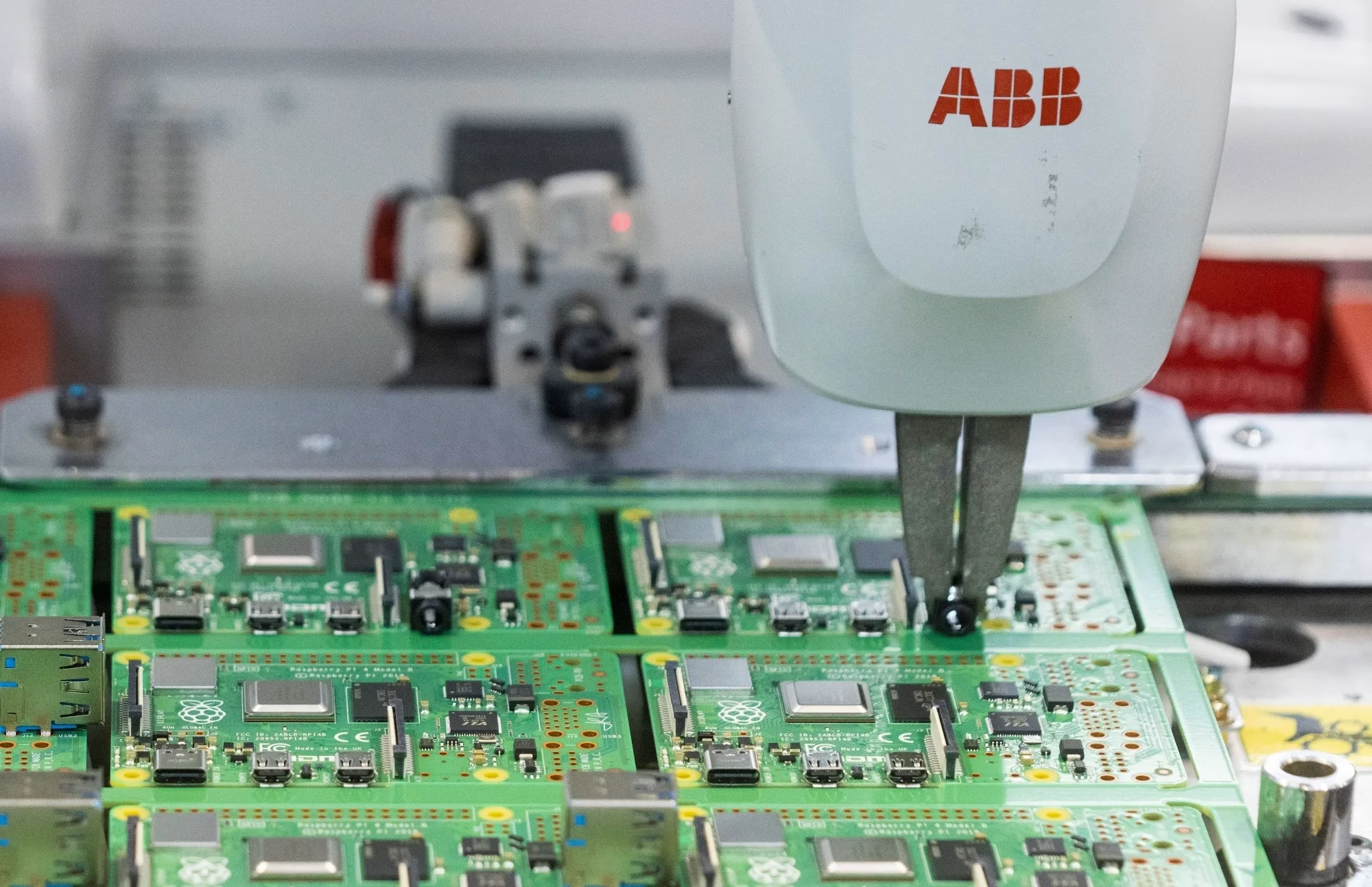SoftBank Bolsters Robotics Ambitions with Acquisition of ABB's Robotics Unit
SoftBank Group Corp. has announced a significant move to deepen its commitment to the robotics sector, agreeing to acquire ABB Ltd.'s robotics business for a substantial USD 5.375 billion. This strategic acquisition, revealed on October 8, 2025, signals SoftBank's aggressive push into what it terms "Physical AI," positioning the company to integrate advanced artificial intelligence with physical robotic systems. The deal is anticipated to close in the first half of 2026, pending regulatory approvals.
This move isn't just about expanding a portfolio; it's a clear statement of intent from SoftBank, particularly from its leadership who view the convergence of AI and physical machines as the next major technological frontier. It builds upon SoftBank's existing investments in AI and robotics, including past stakes in companies like Boston Dynamics. The acquisition of ABB's robotics unit, a globally recognized player with a strong presence in industrial and collaborative robots, is expected to provide SoftBank with a robust foundation of established technology and market access.
A Strategic Pivot: "Physical AI" Takes Center Stage
SoftBank's vision for the future is increasingly centered on the concept of "Physical AI." This isn't merely about smarter software; it's about imbuing robots with sophisticated AI capabilities that allow them to interact with and operate within the physical world in more intelligent, adaptive, and autonomous ways. Masayoshi Son, SoftBank's Chairman and CEO, articulated this vision, stating, "SoftBank’s next frontier is Physical AI. Together with ABB Robotics, we will unite world-class technology and talent under our shared vision to fuse Artificial Super Intelligence and robotics—driving a groundbreaking evolution that will propel humanity forward."
This acquisition is a direct manifestation of that ambition. ABB's robotics division brings with it decades of expertise in designing and manufacturing industrial automation solutions. The unit generated approximately USD 900 million in revenue in 2024 and employs around 3,300 individuals across more than 50 countries. Its specialization in automation for manufacturing, logistics, and electronics aligns perfectly with SoftBank's goal of creating more capable and intelligent physical systems. It's a move that could very well redefine how we think about automation and its potential applications across various industries.
ABB's Strategic Divestment and Market Reactions
For ABB, this divestment represents a strategic sharpening of focus. The company is looking to concentrate on its core electrification and process automation businesses. This strategic shift is expected to unlock value for ABB shareholders, with the company anticipating a non-operational pre-tax book gain of approximately USD 2.4 billion upon the deal's completion. ABB's CEO, Morten Wierod, commented, "This transaction allows us to sharpen our focus on high-growth areas while unlocking value for shareholders." Starting in the fourth quarter of 2025, ABB will begin reporting its robotics division as "Discontinued Operations," signaling a clear break and a redirection of resources.
The market has responded positively to the news. SoftBank's shares saw a notable rise in Tokyo trading following the announcement, reflecting investor confidence in its AI and robotics pivot. Similarly, ABB's stock gained ground in Zurich. Analysts from major financial institutions are highlighting this deal as part of a broader trend in AI-related mergers and acquisitions throughout 2025, with robotics deals showing a significant year-over-year increase. It's an interesting dynamic, as ABB sheds a division that might have faced profitability pressures due to supply chain issues, while SoftBank acquires a powerhouse to fuel its ambitious "Physical AI" agenda.
Synergies and Future Potential: What's Next?
The integration of ABB's robotics capabilities with SoftBank's AI prowess holds significant promise. SoftBank envisions combining ABB's established robot platforms, such as its IRB series known for collaborative and high-precision tasks, with its own advanced AI software. This fusion aims to create "Physical AI" applications capable of real-time learning and adaptation, particularly in manufacturing. ABB's extensive intellectual property, boasting over 1,000 patents, and its global service network are considerable assets that SoftBank aims to leverage.
Furthermore, SoftBank plans to enhance ABB's existing AI-enabled collaborative robots, or "cobots," which already feature advanced safety mechanisms. The integration of generative AI could lead to predictive maintenance solutions that significantly reduce industrial downtime, potentially by as much as 20-30%, based on ABB's pre-deal benchmarks. While immediate product launches aren't expected, the groundwork for future innovation is being laid, with R&D integration commencing upon the deal's signing.
However, it's not all smooth sailing. Some industry observers point to potential integration risks, recalling SoftBank's history of substantial losses within its Vision Fund. The success of this acquisition will hinge on SoftBank's ability to effectively integrate ABB's established industrial robotics operations with its forward-looking AI ambitions. It's a complex undertaking, but the potential rewards—a significant leap forward in intelligent automation—are immense. This acquisition is certainly one to watch closely as the landscape of robotics and AI continues its rapid evolution.
